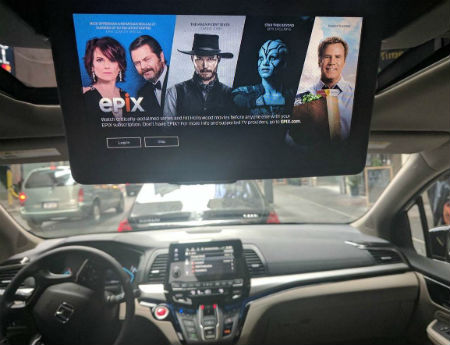Highway Officials: 5.9 GHz Sharing is Misguided

The smarter way to stay on top of the multichannel video marketplace. Sign up below.
You are now subscribed
Your newsletter sign-up was successful
The American Association of State Highway and Transportation Officials (AASHTO) has provided its input on the FCC's proposal to free up 5.9 GHz spectrum for unlicensed wireless, and its answer is a big, fat "no."
The group says it could put lives at risk.
Related: Pai Praises C-V2X Deployment
The 5.9 band had been reserved for dedicated short-range communications (DSRC) between vehicles (V2V) but that technology has been slow to roll out and passed in the fast lane by newer technologies, like C-V2X [Cellular Vehicle-to-Everything].
As a result, the FCC voted unanimously Dec. 12, 2019 to share the band by dividing it up. The proposal is to free up the lower 45 MHz exclusively for unlicensed and keep the the upper 30 MHz for V2V communications, including 20 MHz of that for C-V2X.
But ASHTO, echoing complaints from their federal counterparts at Department of Transportation, says that without the full 5.9 GHz band for V2V technologies, it will be "significantly more difficult" to eliminate the 37,000 fatal vehicle crashes per year
ASHTO said their would economic consequences, like not winning a race with other countries. The Trump Administration puts great in winning such races.
The smarter way to stay on top of the multichannel video marketplace. Sign up below.
"If the proposed reallocation occurs," said ASHTO, "the United States’ competitive edge in the development of connected vehicle technologies will be set back while Europe and Asia surge forward."
"To put it succinctly," said association president Patrick McKenna to the FCC, "AASHTO believes that the FCC proposal to permit unlicensed devices to operate in the lower 45-megahertz portion of the band at 5.850-5.895 GHz (5.9 GHz band) leaving ITS operations in the upper 30-megahertz portion of the band at 5.895-5.925 GHz is wrong and misguided."
Broadband operators have long pushed to free up unlicensed spectrum in the band to boost their Wi-Fi hotspots, the fixed-broadband industry's chief mobile broadband play.
Contributing editor John Eggerton has been an editor and/or writer on media regulation, legislation and policy for over four decades, including covering the FCC, FTC, Congress, the major media trade associations, and the federal courts. In addition to Multichannel News and Broadcasting + Cable, his work has appeared in Radio World, TV Technology, TV Fax, This Week in Consumer Electronics, Variety and the Encyclopedia Britannica.

